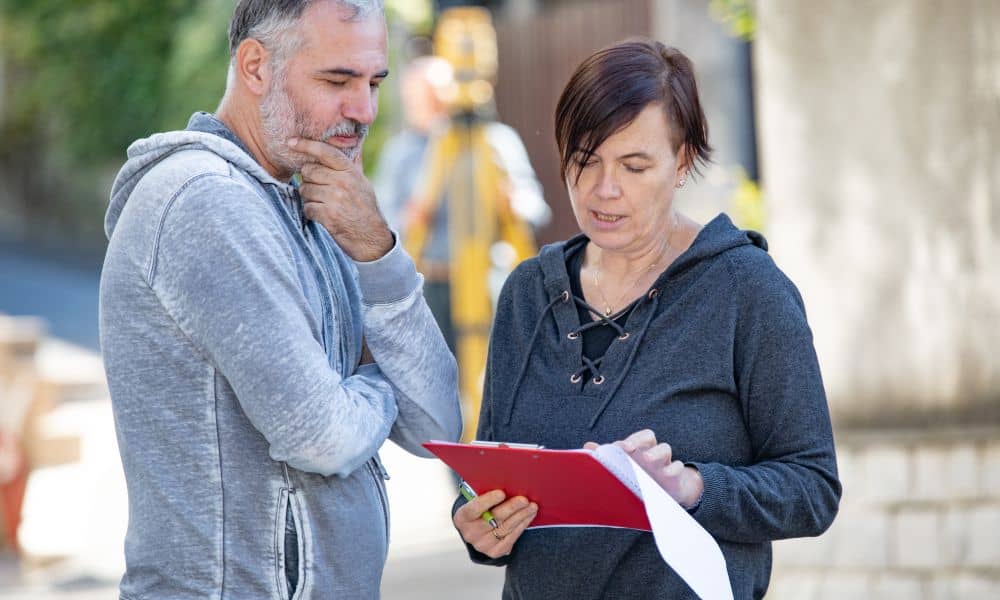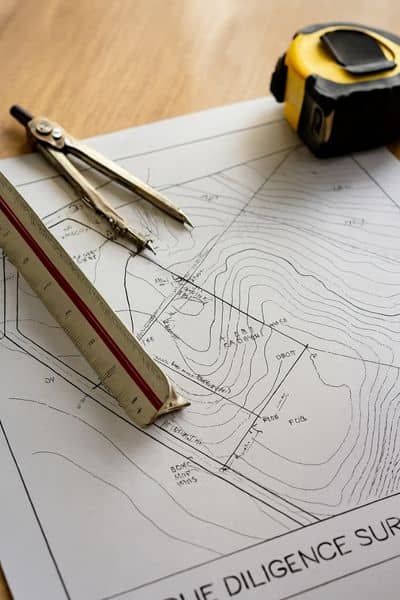
Homeowners all over California are talking about a big change in insurance. The state’s FAIR Plan, which gives coverage to people who can’t get regular insurance, wants to raise rates by more than 35%. At the same time, lawmakers are working on a new rule that will make insurance companies share how they judge wildfire risk. For most people, this sounds like an insurance problem. But for homeowners, builders, and lenders, it’s also a property problem. When rules and rates change, you need clear proof of what your land looks like. That’s where a due diligence survey becomes important.
For years, California’s insurance market has been shaky. Wildfires destroyed homes, repair costs went up, and many insurance companies stopped offering new policies. The FAIR Plan became a backup for people who couldn’t find coverage anywhere else.
Now the FAIR Plan wants to raise its prices, and insurance companies may soon use a public wildfire-risk model that makes every home’s risk level visible. These updates will make insurance more open, but also more demanding. Homeowners might be asked for stronger proof that their property is safe.
A due diligence survey helps do just that. It gives accurate, up-to-date information about your property so lenders and insurers can make fair decisions.
When insurance companies decide your rate, they look at how risky your property might be. They check maps for floods, slopes, fire zones, and drainage. But those maps are only as good as the data inside them.
A due diligence survey gives real-world data. It measures where your property lines are, how the land slopes, and how water drains. It can even spot problems like old encroachments or missing corner markers.
With the new insurance changes, having recent and accurate survey data could help you:
In other words, your survey becomes your proof of confidence.
You might think wildfires only matter in mountain towns, but even places like San Jose feel the impact. Insurance companies now check every type of risk—fire, flood, and ground movement—before renewing or approving coverage.
If your property is near Coyote Creek, Guadalupe River, or the Almaden foothills, expect your lender or insurer to ask for updated records. That might include an elevation certificate or a boundary survey.
Even flat-lot homeowners in city neighborhoods could face questions about drainage or access easements. The goal is simple: companies want proof that your property is safe and correctly documented before they take on the risk.

A due diligence survey goes deeper than a regular boundary check. It looks at the full picture of your land so you can make informed choices. Here’s what it includes in simple terms:
The finished report shows lenders, builders, or buyers exactly what they need to know—without any guessing.
So how does a law about wildfire-risk models relate to land surveying? It’s all about accuracy.
When insurers must be more transparent, they rely on precise property data to support their rates. They can’t depend on old maps or rough estimates anymore. The easiest way to get reliable information is through a professional survey.
This means that survey results could soon become part of standard paperwork for insurance renewals or real-estate deals. Having a current due diligence survey can keep you ahead of the process instead of being caught by surprise.
A small business owner in North San Jose learned this lesson the hard way. While refinancing a commercial property, the lender stopped the process because the site plan on file was from 2017. The flood data and elevation numbers were out of date.
The owner hired a local surveyor to perform a new due diligence survey. It updated the topographic map, boundary corners, and elevation information. Once the report was submitted, the refinance was approved within two days.
The extra effort saved time, avoided higher interest costs, and built trust with both the bank and the insurer.
You don’t have to wait for an emergency or a renewal letter to take action. Here’s how homeowners and property owners can prepare now:
These steps are small but powerful. They can save you money and stress later on.
Big insurance changes often make people nervous. But they can also be a chance to protect your property better. A due diligence survey turns confusion into clarity. It shows where your property really stands—literally and financially.
With accurate measurements, you can prove that your home is safe, your land is stable, and your documentation is solid. That’s the kind of evidence lenders and insurers trust.
Think of it as a health check for your property. You don’t wait until something breaks to see a doctor, right? The same logic applies here. A quick survey today can prevent a major problem tomorrow.
The FAIR Plan rate hike and new public insurance model are changing how property risk is measured across California. In this new system, up-to-date data is power.
A due diligence survey gives you that power. It replaces guesswork with facts, helping you keep insurance costs fair and avoid delays in loans or projects.
If you own property anywhere in California — or even beyond — now is the perfect time to update your records. Whether it’s a single-family home, a rural lot, or a commercial building, having clear and current property data can protect you from unexpected costs, loan delays, or insurance issues down the road.